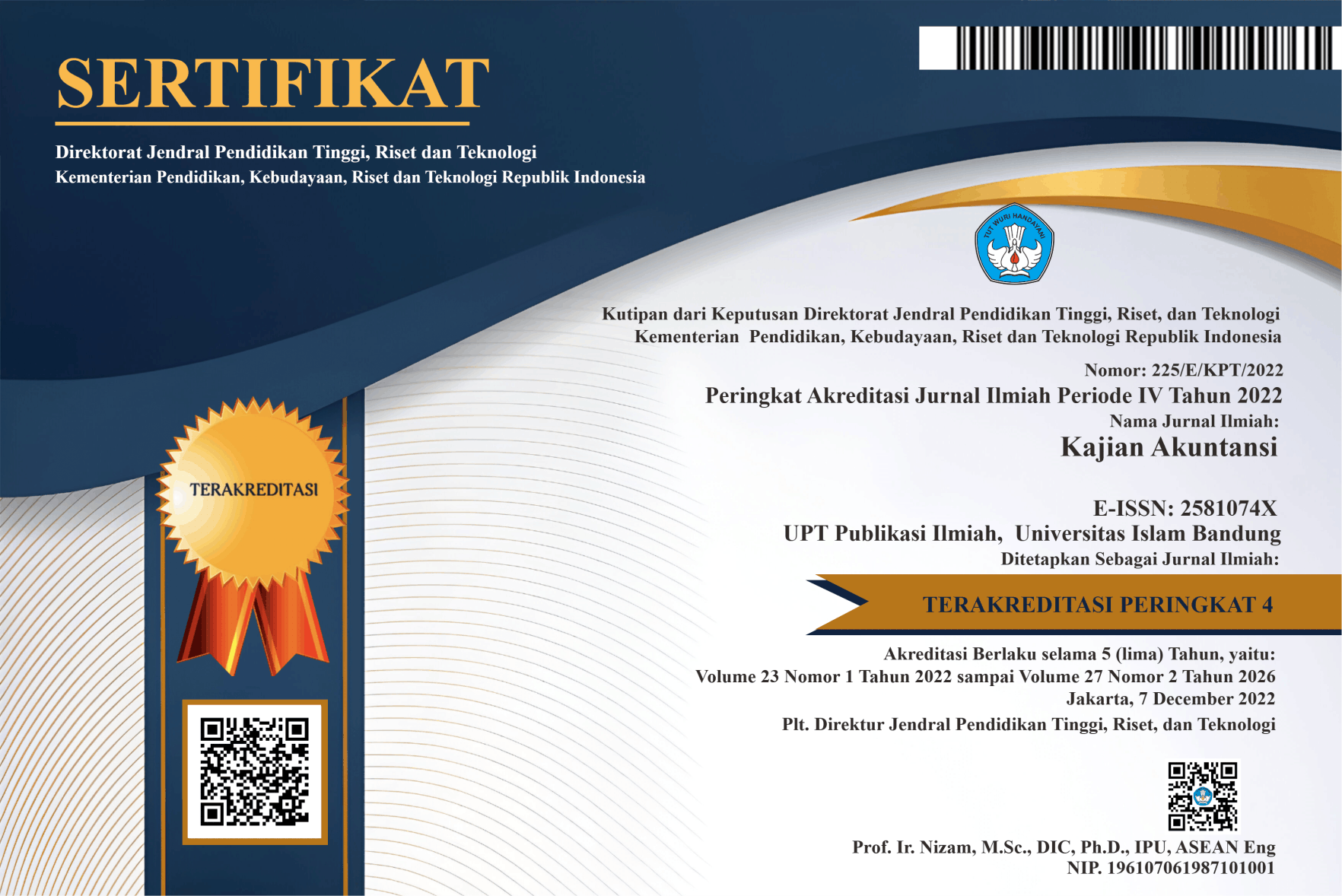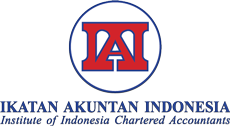THE EFFECTIVENESS OF THE KANBAN METHOD IN DEVELOPING ACCOUNTING INFORMATION SYSTEMS FOR MSMEs
DOI:
https://doi.org/10.29313/kajian_akuntansi.v24i2.2563Abstract
This research analyzes the effectiveness of implementing the Kanban Method in developing a simple accounting information system for MSMEs in Bandung, particularly those under the guidance of PC Persis Banjaran. The study employs a qualitative approach with a triangulation method, which combines data from direct observations and interviews with system developers, business actors as prospective system users, and experts, as well as the analysis of relevant documents. The research findings demonstrate that the application of the Kanban Method in developing accounting information systems is quite effective. The Kanban Method enables system developers to become more adaptive and responsive in addressing changes in the development needs of information systems. This study reveals that the use of the Kanban Method in developing a simple accounting information system leads to improvements in data processing effectiveness, financial transaction calculations, and zakat reporting according to the needs of prospective system users.
Keywords : Kanban, Accounting information system, MSMEs, Bandung, PC Persis Banjaran.
References
Badan Pusat Statistik Kabupaten Bandung. 2020. “Kecamatan Bojongsoang dalam Angka-Angka 2020.
Dominguez, Jorge. 2021. The Curious Case Of the Chaos Report 2009. IT Project Management, https://www.projectsmart.co.uk/it-project-management/the-curious-case-of-the-chaos-report-2009.php.
Liker, Jeffrey K. 2004. The Toyota Way. America: Mc.Grawhill.
Liker, Jeffrey K. dan Michael Hoseus. 2009. Toyota Culture. America: McGraw-Hill.
M. O. Ahmad, D. Dennehy, K. Conboy, and M. Oivo. 2018. “Kanban in software engineering: A systematic mapping study,” J. Syst. Softw., vol. 137, pp. 96–113, 2018, doi: 10.1016/j.jss.2017.11.045.
M. Skarin. 2015. Real-World Kanban - Do Less, Accomplish More with Lean Thinking.
Moleong, Lexy J. 2005. Metodologi Penelitian Kualitatif. Edisi Revisi.Cetakan Keduapuluhsatu. Bandung: Remaja Rosdakarya. 330-331.
O’Brien & Marakas. 2009. Management Information Systems. Ninth Edition.
Portman, Henny. 2021. CHAOS 2020: Beyond Infinity Overview. Project Success Quick Reference Card, https://hennyportman.files.wordpress.com/2021/01/project-success-qrc-standish-group-chaos-report-2020.pdf.
R. Cole, Brilliant. 2015. Agile project management: a practical guide to using Agile, Scrum and Kanban.
Riaz, M. N. 2019. Implementation of Kanban Techniques in Software Development Process: An Empirical Study Based on Benefits and Challenges. Sukkur IBA Journal of Computing and Mathematical Sciences, 3(2), 25–36. https://doi.org/10.30537/sjcms.v3i2.356.
Satzinger J.W, Jackson R.B., and Burd S.D. 2012. System Analysis and Design in a Changing World Seventh Edition. Cengage Learning.
Sérgio, P., Beltrão, A. C., & Souza, B. P. De. 2018. On the benefits and challenges of using kanban in software engineering: a structured synthesis study. 1–29.
Sutopo, H.B. 2006. Metodologi Penelitian Kualitatif. Surakarta: Penerbit Universitas Sebelas Maret.
Swords, Simon. 2020. Why Software Projects Fail & 6 Strategies To Make Them Succeed. Atlas Code. https://www.atlascode.com/blog/why-software-projects-fail.
Versionone. 2016. The 10th Annual State of Agile Survey. Annual State of Agile Survey URI http://stateofagile.versionone.com/.
Versionone. 2017. The 10th annual State of the agile survey. Annual state of agile survey URI https://explore.versionone.com/state-of-agile/versionone-11th-annual- state-of-agile-report-2.















